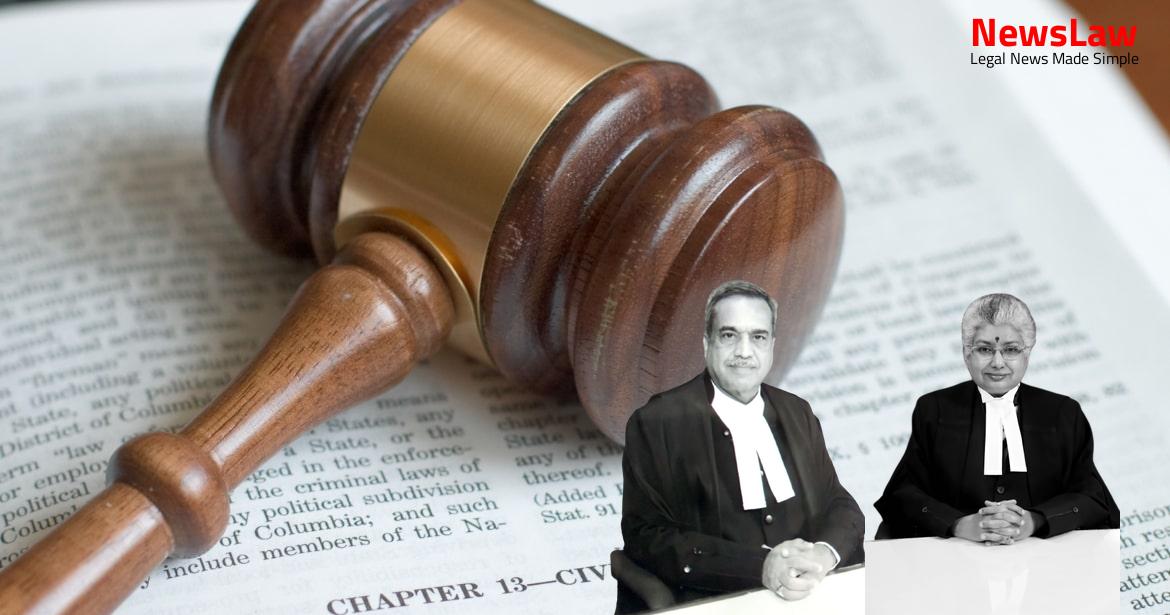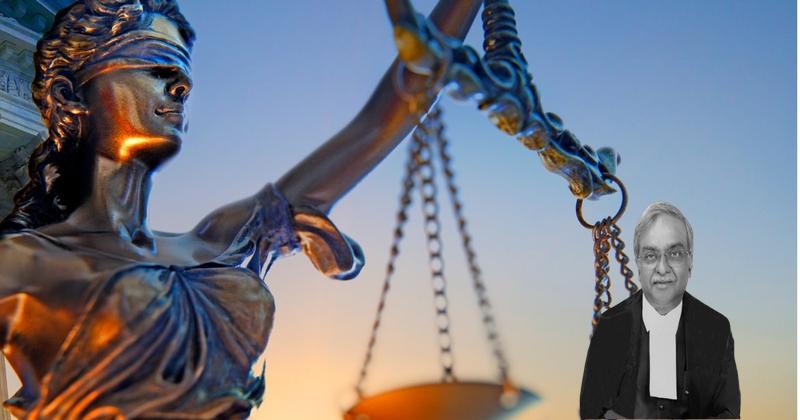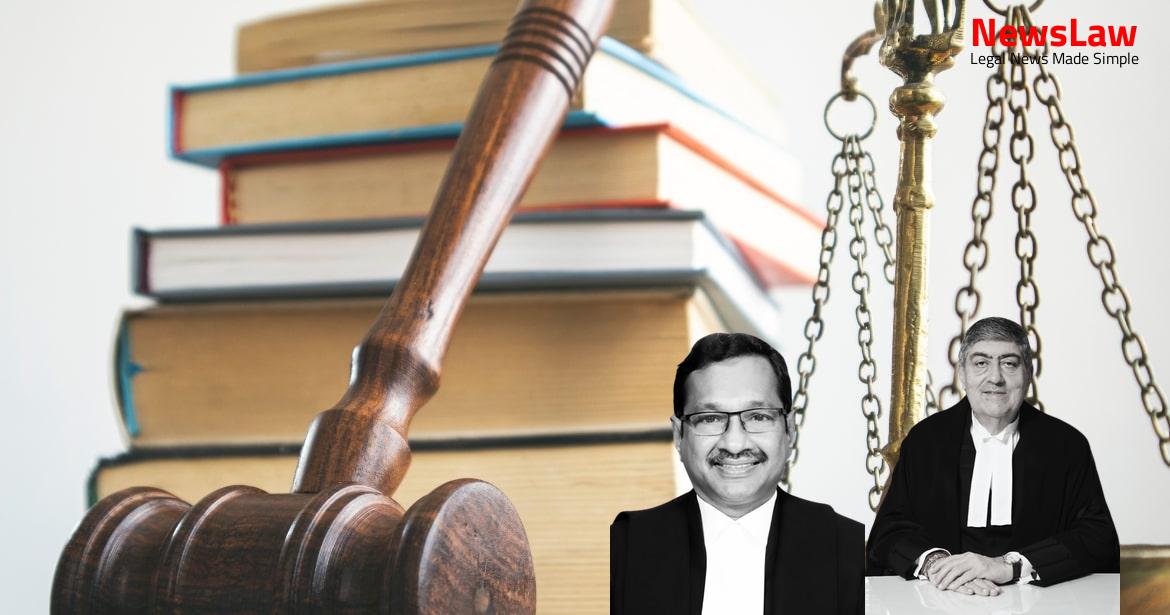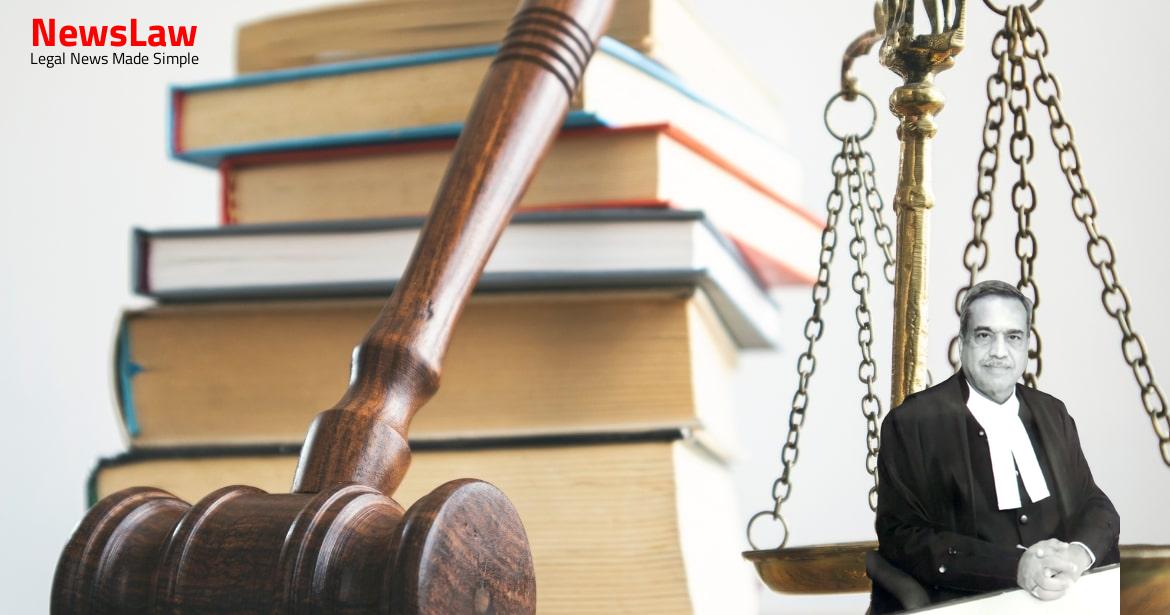In the legal realm, the enforcement of sentencing principles by courts plays a crucial role in maintaining the integrity and fairness of the justice system. Sound legal analysis and consideration of factors such as the gravity of the offense and the impact on victims are essential components for ensuring just outcomes. Let’s delve into the significance of courts adhering to established principles when determining appropriate sentences in criminal cases.
Facts
- The State has appealed against the High Court’s decision to reduce the sentence imposed by the trial Court for accused Banwari Lal and confirm probation for accused Mohan Lal.
- The trial Court found the injuries inflicted by Banwari Lal on the victim sufficient to cause death.
- Both accused filed an appeal against their conviction and sentence, with Banwari Lal seeking a reduction in sentence due to the long duration since the incident and their age.
- The High Court reduced Banwari Lal’s sentence to time already served (44 days) but upheld the conviction. Mohan Lal’s probation order was also confirmed.
- The State is dissatisfied with the High Court’s decision and has filed the current appeal.
- Banwari Lal was tried for the offence under Section 307 IPC for causing grievous injuries to Phool Chand.
- Phool Chand sustained a lacerated wound on the skull, extending up to the brain membrane.
- The wound was 10 x 1 cms bone deep with the bone emerging out.
- Apart from the skull injury, Phool Chand also suffered other injuries.
- The trial court charged the respondents for offences under Sections 147, 148, 149, 447 & 323 IPC, and Section 307 IPC specifically for Banwari Lal.
Also Read: Ruling on Circumstantial Evidence in Murder Case
Arguments
- High Court did not consider the gravity of the offence and the serious injuries sustained by the victim Phool Chand.
- No specific reasons provided by the High Court for reducing the sentence imposed by the trial Court.
- Mitigating and aggravating circumstances not considered by the High Court while reducing the sentence.
- Opposition to the appeal by Shri Abhishek Gupta, advocate for the respondents.
- Trial Court’s judicial discretion in sentencing the accused should not have been interfered with by the High Court.
- Citing cases like State of Rajasthan v. Mohan Lal, State of Madhya Pradesh v. Udham, and Satish Kumar Jayanti Lal Dabgar v. State of Gujarat to support the appeal.
- The State is praying for the rejection of the application for condonation of delay and the appeal on merits.
- The State cannot challenge the order granting probation to accused Mohan Lal as it was not contested before the High Court.
- The benefit of probation was granted by the trial Court, and the State did not appeal against it.
- The accused have resettled in their lives, shown satisfactory conduct, and have not engaged in criminal activities since the occurrence in 1989.
- Reviving the proceedings after such a long period would be harsh and unjustified.
- The High Court considered the long duration since the occurrence, the age of the accused, and the time spent facing trial as relevant factors while reducing the sentence to the period already undergone (44 days).
- There is a significant delay of 1880 days in filing the appeal against the High Court’s judgment.
Also Read: Challenging Legal Presumptions in Negotiable Instrument Cases
Analysis
- The High Court’s decision to reduce the sentence without detailed analysis is criticized.
- Factors such as seriousness of injuries, weapon used, and nature of the crime were not properly considered by the High Court.
- The High Court’s sentencing approach was deemed lenient and inadequate.
- The High Court failed to provide valid reasons for the meager sentence imposed.
- The judgment reducing the sentence was seen as a travesty of justice and against established legal principles.
- The High Court’s disposal of the appeal was described as cavalier and using shortcuts.
- The doctor’s opinion on the life-threatening nature of the victim’s injury was highlighted.
- The High Court’s failure to consider relevant factors for appropriate sentencing was highlighted.
- A caution against hasty and inadequate sentencing methods by certain courts was emphasized.
- The importance of considering the seriousness of the crime in sentencing decisions was reiterated.
- Courts must consider certain principles like proportionality, deterrence, and rehabilitation while exercising discretion in sentencing.
- Sentencing decisions should be based on rationales such as proportionality and deterrence.
- The seriousness of an offense determines the commensurate punishment for the offender, which also depends on the harmfulness of the offense.
- Unintended consequences of criminal actions may still attribute culpability to the offender if they were reasonably foreseeable.
- Cavalier sentencing must be avoided, and courts should be cautious in imposing appropriate, just, and proportionate sentences.
- Inadequate sentencing can harm the justice system and lead to loss of confidence in the judicial system by the public.
- Offenders who commit acts endangering life or causing hurt with explosives are punishable with imprisonment up to ten years and fine.
- If the act results in hurt to any person, the offender may face imprisonment for life or punishment as per Section 307 IPC.
- If the State is aggrieved by the granting of probation, it should appeal to the High Court
- The State should not have filed the present appeal against Mohan Lal after his appeal was dismissed and conviction confirmed
Also Read: Legal Analysis Critique in High Court’s Quashing Order
Decision
- The High Court interfered with the order of sentence imposed by the trial Court for Banwari Lal under Section 307 IPC.
- The interference by the High Court sentencing Banwari Lal to the period already undergone (44 days) was quashed and set aside.
- The trial Court’s sentence of three years’ rigorous imprisonment for Banwari Lal under Section 307 IPC was restored by the judgment.
- Banwari Lal is directed to surrender within four weeks to undergo the remaining sentence.
- The State’s appeal against Mohan Lal was dismissed.
Case Title: STATE OF RAJASTHAN Vs. BANWARI LAL (2022 INSC 410)
Case Number: Crl.A. No.-000579-000579 / 2022



